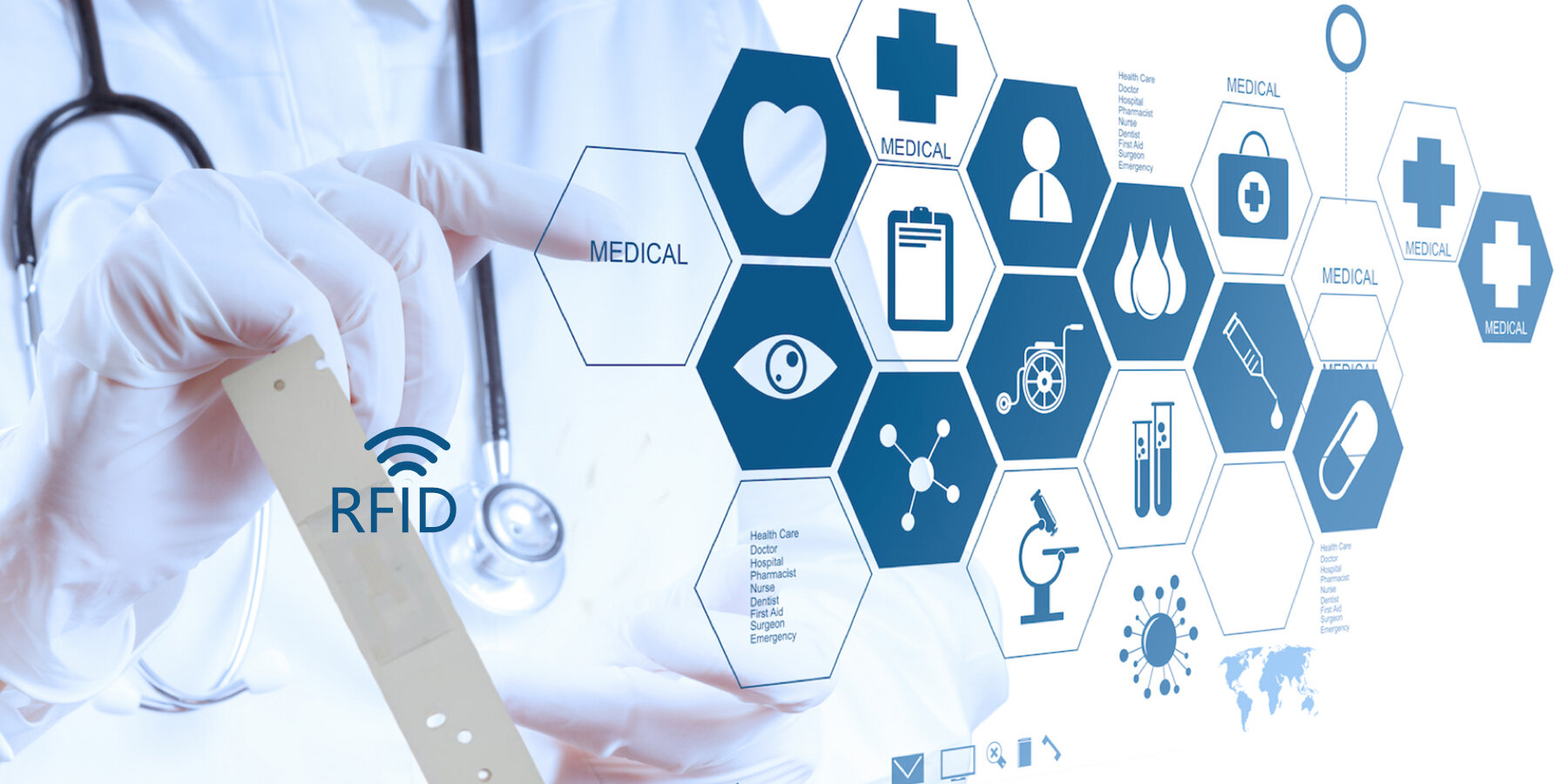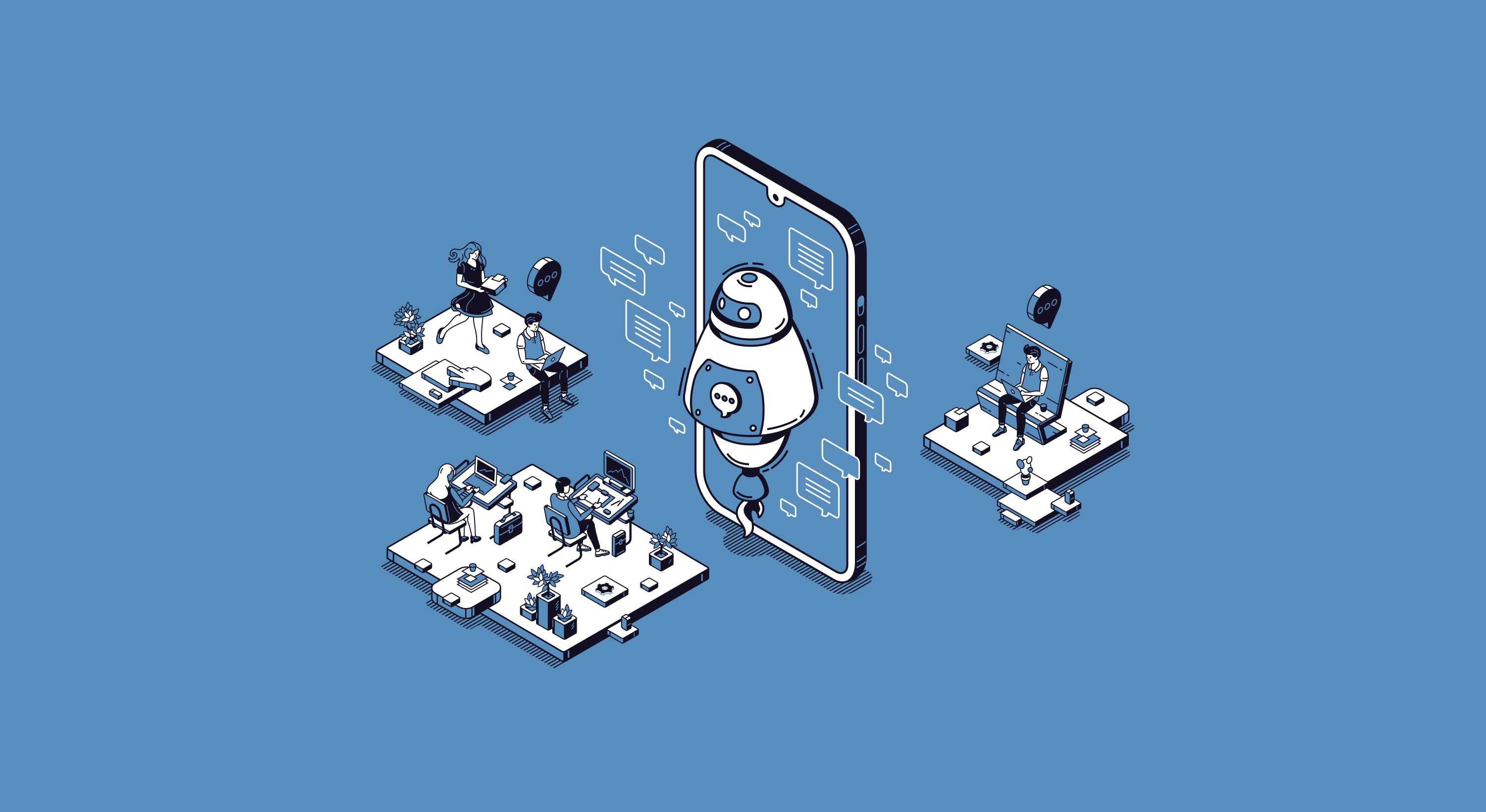Decoding RFID healthcare solutions

A growing global public health concern is patient safety. Statistics indicate that there are more and more mistreatments in the healthcare system, particularly in this pandemic era, because of incorrect patient identification or medication administration. Out of 421 million hospitalizations, it is predicted that 42.7 million adverse events occur annually. The implementation of Radio Frequency Identification (RFID) healthcare solutions is one of the integrated IT technologies in the medical and healthcare fields for this challenge.
What is an RFID healthcare solution and why do you need it?
RFID is the next-generation medical technology that is utilized for data collection and tracking. The technology has also been effectively used in a number of other areas than healthcare, including manufacturing, retail, and logistics. Furthermore, by tagging goods, assets, and patients, the system offers numerous options for improved safety, operational efficiency, and cost savings.
The World Health Organization states that 1 in 300 people may suffer injury as a result of medical errors while receiving treatment. Misidentification of patients and medications, adverse drug events, and erroneous blood transfusions are the main causes of medical errors. These three categories account for the majority of medical errors.
The demand analysis of the global RFID in healthcare market size and share revenue is predicted to expand from USD 1.8 billion in 2020 to USD 3.5 billion by 2026, at a 12.7% annual CAGR during 2021–2026, according to a market research report released by Facts and Factors.
Because RFID tags are "read-write," they have many advantages over current technology. But even with all of RFID's advantages, there are certain restrictions. These include the price, the incapacity to tolerate high temperatures, the need for constant internet access, and additional electrical requirements. The batteries that power RFID tags have a limited lifespan and increase the cost of the tags.
RFID's advantages and uses in healthcare
RFID applications cover blood transfusion, equipment and asset tracking, drug tracking, identification and administration, patient tracking, identification and monitoring, and sensor-derived data collecting. This entails lowering human mistake rates in patient-provider interactions in order to improve the quality of care for patients. However, due to high prices and challenges in justifying the investment, hospitals have only modestly adopted RFID technology.
Patient identification, patient tracking, patient monitoring, and patient medication compliance are the four applications that fall under the category of patient safety.
Technology for patient identification in healthcare
Hospitals deal with the issue of patient misidentification on a daily basis. One of the primary causes of medical errors in hospitals is patient misidentification, which is seen as a risk to patient safety. RFID technology can be used for positive patient identification (PPI) applications, such as smart wristbands with passive RFID tags that can be read to identify patients and reveal details like name, date of birth, insurance information, allergies, blood type, and prescription needs. According to a number of studies, hospitals should try to stop these mistakes by putting in place a reliable patient identification system that can enhance hospital safety protocols.
In order to query and receive accurate associated medical data from the numerous current healthcare information systems, other researchers suggest using RFID-based patient identification. This might potentially reduce patient handling errors. RFID identification can also be utilized for surgical patients to guarantee that the correct patient is undergoing the surgery.
Monitoring of patients
Among the most popular RFID applications in the healthcare industry is supply chain management, which includes keeping an eye on medical inventories, supplies, and assets. By automatically displaying a patient's phase, RFID patient monitoring capabilities can improve patient flow, lower wait times, and provide clarity to both patients and staff regarding the surgical trajectory.
RFID tracking can also be used to determine whether patients are prepared to leave the hospital, reducing the number of needless extended stays and improving the utilization of resources. Additionally, it can make it possible to follow elderly people with long-term illnesses wherever they live. The movement tracking of patients, employees, and visitors is another tracking tool that helps find and identify individuals who have come into touch with infectious disease carriers.
Numerous hospitals employed RFID technology to enhance patient care throughout the pandemic. Furthermore, the hospitals were able to identify and track individuals who had come into touch with the SARS-cov2 (covid)-infected patient prior to the diagnosis thanks to the RFID systems' recorded data.
RFID patient monitoring (in conjunction with other Internet of Things sensors)
Additionally, it can be applied to sensor-derived data collecting and patient monitoring. For instance, they might advocate for the use of RFID technology implanted in the body to act as a portable medical record. For example, the Show Chan Hospital in Taiwan launched the "Intelligent digital health network" project during the SARS outbreak, tracking the body temperature of potentially contagious patients with fever using active RFID tags for patient monitoring. Additionally, a senior citizen home used the remote data link RFID capability to remotely transmit the physiological data and movements of patients who were bedridden or incapacitated.
medication compliance in patients RFID technology may be applied and embraced to increase medication compliance. A human face-detecting house robot prototype and an RFID-tagged tablet dispenser that improves medication compliance and tracks medication intake were used to illustrate this approach.
>> You also should read Top 5 Benefits of Cloud Computing in Healthcare Industry
RFID technology's shortcomings in the medical
While using RFID to track, identify, and monitor patients and assure medication compliance has several advantages, there are a number of obstacles that must be overcome before RFID can be widely adopted to improve patient safety.
Three categories can be used to group these challenges:
- Technological difficulties
- Challenges with security, privacy, and data management
- Financial and organizational difficulties
Technological difficulties
RFID adoption has challenges due to a few technological restrictions, particularly in the healthcare industry. For instance, electromagnetic interference (EMI) with biomedical devices may be brought on by RFID wireless broadcasts. This is a problem for RFID applications in the healthcare industry since RFID tag-generated electromagnetic interference (EMI) can seriously impair the functionality of electronic medical equipment and biomedical devices, endangering patient safety in healthcare settings.
Medical devices like external pacemakers or syringe pumps may experience electromagnetic interference (EMI) from RFID tags, which could cause the devices to malfunction when they come into contact with one. Patients' health would be directly jeopardized by this. However, the precision and dependability of RFID devices provide additional technological hurdle. For instance, RFID tags might not function as intended in specific circumstances or with particular products, in contrast to barcodes—which are now utilized by the majority of hospitals—which are typically dependable.
In a different study, the technological uses of RFID in body-centric systems for patient monitoring and IoT sensor-based data collection regarding the patient's living space were reviewed. Although the study indicates that the majority of RFID applications in healthcare are still in the experimental stage, recent developments in biomaterial engineering are opening the door to the creation of thin-shelf electronic tattoos that are completely biocompatible and self-degradable in a given amount of time. These devices could be employed as transient wireless wearable sensors for patient monitoring.
medication compliance in patients RFID technology may be applied and embraced to increase medication compliance. For instance, by affixing an RFID tag to the medication container that tracks each time it is opened, patient drug compliance solutions can also be utilized at home following discharge from the hospital. Physicians can also view this RFID data and track patients' adherence to their medication regimens. A human face-detecting home robot prototype and an RFID-tagged tablet dispenser that tracks medication intake and enhances drug compliance were used to illustrate this approach.
In line with this, a study suggested a prototype for tracking the usage of pharmaceuticals that uses an RFID reader, RFID tags, and web-based software. In addition, the system notifies medical staff if any medications have run out. Furthermore, based on their wound monitoring data, RFID-enabled smart bandages can help post-surgery patients receive controlled medicine delivery.
An further study was out at a Greek hospital demonstrated the use of RFID technology in medicine to handle blood samples through a blood bank administration system. The results of the study indicate that the use of RFID in conjunction with barcodes can improve the management of blood samples and lower the possibility of blood product waste and misidentification. Likewise, others contend that RFID technologies can help transfusion departments better organize blood samples and make it easier to identify and transfuse the appropriate patient with blood products.
Challenges related to security, privacy, and data management
The healthcare industry places a high value on these issues. One of the most difficult problems with information delivery in the context of RFID technology is ensuring security and privacy. The main sources of privacy challenges are the counterfeiting of sensitive data that isn't secured inside RFID tags, data interception during transmission, and illegal access to sensitive data. Legally speaking, however, unencrypted patient data kept on RFID tags can also be seen as a breach of laws, such as the USA's Health Insurance Portability and Accountability Act (HIPAA). Furthermore, RFID systems may be vulnerable to physical attacks such timing attacks, fault integration attacks, and power analysis attacks since the majority of RFID tags rely on wireless interfaces. Eavesdropping and standards requiring RFID tag or reader identification are major concerns when it comes to data transmission.
Financial and organizational obstacles
A significant upfront expenditure is needed to implement an RFID system. RFID tag costs are still seen as high even though they have dropped dramatically over the last ten years in the medical field. These days, an active RFID tag can cost up to $20, whereas a passive tag only costs about 10 cents. If all of a hospital's assets, employees, and patients are tagged, this represents a significant financial commitment. The RFID infrastructure needs middleware, databases, servers, and applications in addition to RFID tags and readers. Moreover, expenses for organizational change, training, business process development, and RFID infrastructure upkeep must be taken into consideration.
All things considered, asset tracking, patient tracking, medication tracking, blood tracking, and other uses are possible with global radiofrequency identification technology. Having an advantage over RFID technology has become essential for healthcare organizations due to its increasing deployment. Please contact our app development team for more details about this medical technology.
>> See how Axalize solved the challenge in a case study in healthcare
Last thoughts
In conclusion, the integration of RFID technology in healthcare is not just a trend but a transformative solution for enhancing patient care, optimizing processes, and improving overall efficiency. As you embark on your RFID journey, consider partnering with industry-leading IT service providers like Axalize. With their expertise and innovative solutions, Axalize stands at the forefront of driving healthcare forward into a future where technology empowers better outcomes and experiences for all stakeholders. Embrace the power of RFID and unlock new possibilities in healthcare management today.


